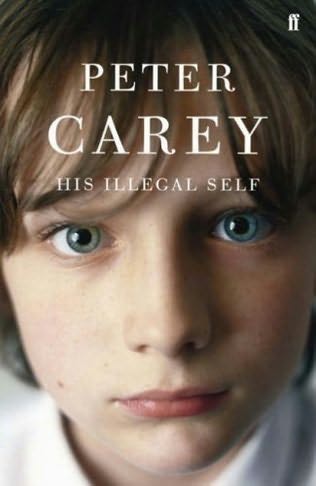 This is from the latest issue of TimeOut Mumbai.
This is from the latest issue of TimeOut Mumbai.HIS ILLEGAL SELF Peter Carey
Shape-shifters, continent-crossers and murky identities are only to be expected in Peter Carey’s novels, and so it is with his latest, His Illegal Self. Set in the early Seventies, it deals with the fate of the seven-year-old Che Selkirk, living with his grandmother on privileged Park Avenue when the novel opens.
It turns out that Che’s parents – whom he’s never lived with -- are radical Ivy Leaguers, wanted by the authorities for their violent socialist protests. Che’s imagination is fuelled by thought of a parental reunion, so when a woman calling herself Dial (short for “dialectic”) arrives to accompany them on an outing, he immediately jumps to the conclusion that she’s his mother.
Circumstances lead Dial to abscond with Che, and after some nights in strangers’ houses and flea-bag motels, they fly to a commune in Queensland, Australia. As his relationship with Dial flourishes and deepens, Che comes to understand the truth about his parents and Dial’s involvement in the affair.
The novel is written in short, interlocking chapters, occasionally alternating between Che and Dial’s points of view. When this works, it works very well, making the narrative proceed in a two-steps-forward, one-step-back manner. The prose is jagged, with the excess wrung from it, yet enlivened by the occasional appropriate metaphor.
It’s also clear that Carey writes with first-hand knowledge of the Australian interior, dwelling on the nature of vegetation, the properties of lumber and the difficulties of agriculture.
Though the novel is very good when it comes to capturing the mystifications of childhood and the relationship between Dial and Che, it’s let down by some narrative inconsistencies: the flight to Australia, for a start, and Dial’s continuing motivation, for another. His Illegal Self is certainly not a mis-step, but neither is it as sure-footed as some of Carey’s other novels.
No comments:
Post a Comment